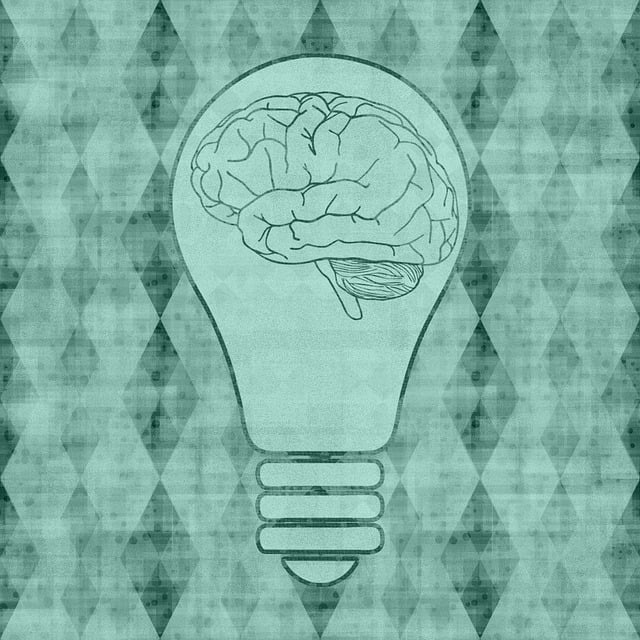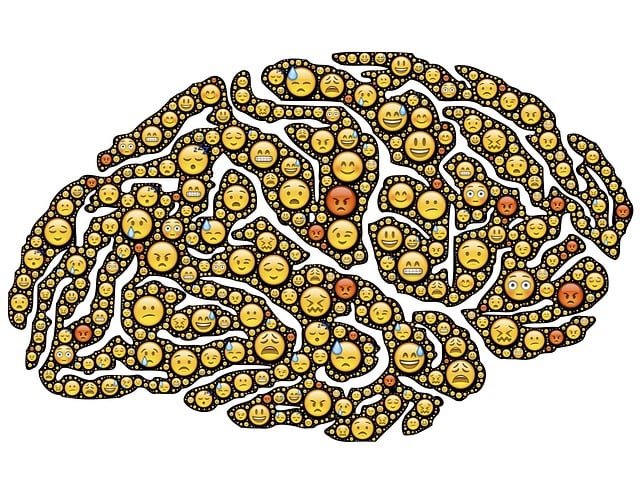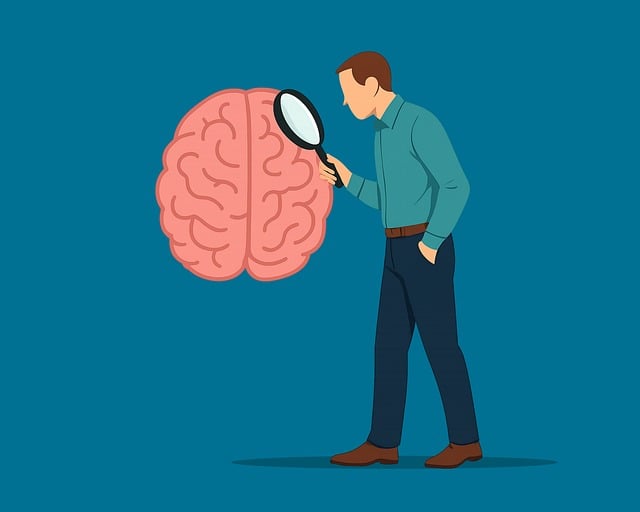Emotional intelligence (EI) is vital for modern workplaces, promoting positive dynamics, healthy relationships, teamwork, and job satisfaction. Effective stress management, achieved through identifying stressors, employing coping strategies, and utilizing therapy tailored to workplace issues, enhances mental well-being. Building emotional regulation skills and self-esteem through therapy strengthens interpersonal connections, resolves conflicts, and fosters supportive work environments. In dynamic professional settings, therapy serves as a critical tool for addressing job-related stress, anxiety, and burnout, normalizing mental health discussions, setting boundaries, and promoting self-care. Public awareness campaigns and regular risk assessments further support these efforts, ultimately creating healthier, more productive workplaces.
Emotional intelligence (EQ) is a game-changer in today’s dynamic workplace. Understanding EQ and its impact on professional dynamics can revolutionize employee interactions and overall well-being. This article explores key strategies, including therapy for workplace issues and job stress, to enhance EQ. By identifying and managing stressors, improving interpersonal relationships, and leveraging therapy, organizations can foster a healthier, more productive environment. Dive into these essential practices to unlock the full potential of your workforce.
- Understanding Emotional Intelligence and its Impact on Workplace Dynamics
- Identifying and Managing Stressors in the Professional Environment
- Strategies for Enhancing EQ to Improve Interpersonal Relationships
- The Role of Therapy in Addressing Workplace Issues and Promoting Employee Well-being
Understanding Emotional Intelligence and its Impact on Workplace Dynamics

Emotional intelligence (EI) is a powerful tool that significantly influences workplace dynamics. It refers to an individual’s ability to recognize and understand their own emotions, as well as those of others, and to use this awareness to guide thoughts and actions effectively. In today’s fast-paced and demanding work environments, high EI can foster positive relationships among colleagues, enhance teamwork, and improve overall job satisfaction.
When employees possess strong emotional intelligence, they are better equipped to handle workplace issues and job stress. This includes developing resilience building skills that help them cope with challenges, managing their emotions in stressful situations, and resolving conflicts constructively. Moreover, EI facilitates the coping skills development needed to navigate career transitions, balance work-life demands, and maintain a healthy mental state. Through therapy for workplace issues and job stress, professionals can learn emotional healing processes to boost their overall well-being and performance at the office.
Identifying and Managing Stressors in the Professional Environment

In today’s fast-paced professional landscape, navigating stress is a vital skill for employees to cultivate. Identifying stressors in the workplace is the first step towards managing them effectively. This process involves recognizing patterns of anxiety or dissatisfaction and understanding their sources—be it heavy workloads, challenging deadlines, or interpersonal conflicts. Once these triggers are identified, individuals can employ various strategies to mitigate stress, ranging from time management techniques to open communication with colleagues and supervisors.
Therapy for Workplace Issues and Job Stress plays a crucial role in empowering employees to build inner strength and resilience. Mental Health Education Programs Design focused on stress management can equip workers with tools to recognize and address their emotional needs. Additionally, Community Outreach Program Implementation initiatives that promote healthy coping mechanisms and offer support networks can foster a more supportive and productive work environment.
Strategies for Enhancing EQ to Improve Interpersonal Relationships

Building emotional intelligence (EQ) is a powerful tool for enhancing interpersonal relationships in both personal and professional settings. One effective strategy involves engaging in therapy tailored to address workplace issues and job stress. Mental Health Policy Analysis and Advocacy play a crucial role in creating supportive environments where individuals can prioritize their well-being, fostering open communication and understanding. By learning emotional regulation techniques, people can better manage their own emotions and respond thoughtfully to others’ feelings, strengthening connections and resolving conflicts constructively.
Additionally, focusing on self-esteem improvement is vital for cultivating healthy relationships. Through various therapeutic interventions, individuals can develop a deeper sense of self-worth, confidence, and resilience, which in turn enhances their ability to connect with others authentically. This holistic approach not only benefits personal relationships but also contributes to more positive and productive work environments, making it an essential aspect of any comprehensive strategy aimed at improving mental health and job satisfaction.
The Role of Therapy in Addressing Workplace Issues and Promoting Employee Well-being

In today’s fast-paced work environments, therapy plays a pivotal role in addressing workplace issues and promoting employee well-being. It offers a safe space for individuals to process and manage job stress, anxiety, and even burnout. Through various therapeutic approaches, professionals can develop effective coping strategies to navigate challenging situations at work, leading to improved mental resilience. Therapy also facilitates open communication, helping employees express their concerns and fostering an environment where discussing mental health is normalized.
Additionally, therapy for workplace issues contributes to burnout prevention by providing tools to set boundaries, manage workloads, and prioritize self-care. Public awareness campaigns development can further enhance this process by educating organizations about the importance of mental health and encouraging early intervention. Conducting regular risk assessments for mental health professionals is also crucial to ensure they have the necessary support systems in place, thereby indirectly benefiting the entire workforce.
Emotional intelligence (EQ) is a powerful tool for navigating the complex dynamics of the modern workplace. By understanding EQ’s impact on interpersonal relationships, identifying and managing stressors, and employing strategies to enhance emotional awareness, individuals can create a healthier professional environment. Furthermore, therapy plays a pivotal role in addressing workplace issues and job stress, providing a safe space for employees to process emotions, gain insights, and develop coping mechanisms. Investing in EQ development and accessing appropriate therapy can revolutionize workplace relationships and foster a more supportive, productive, and fulfilling work culture.














